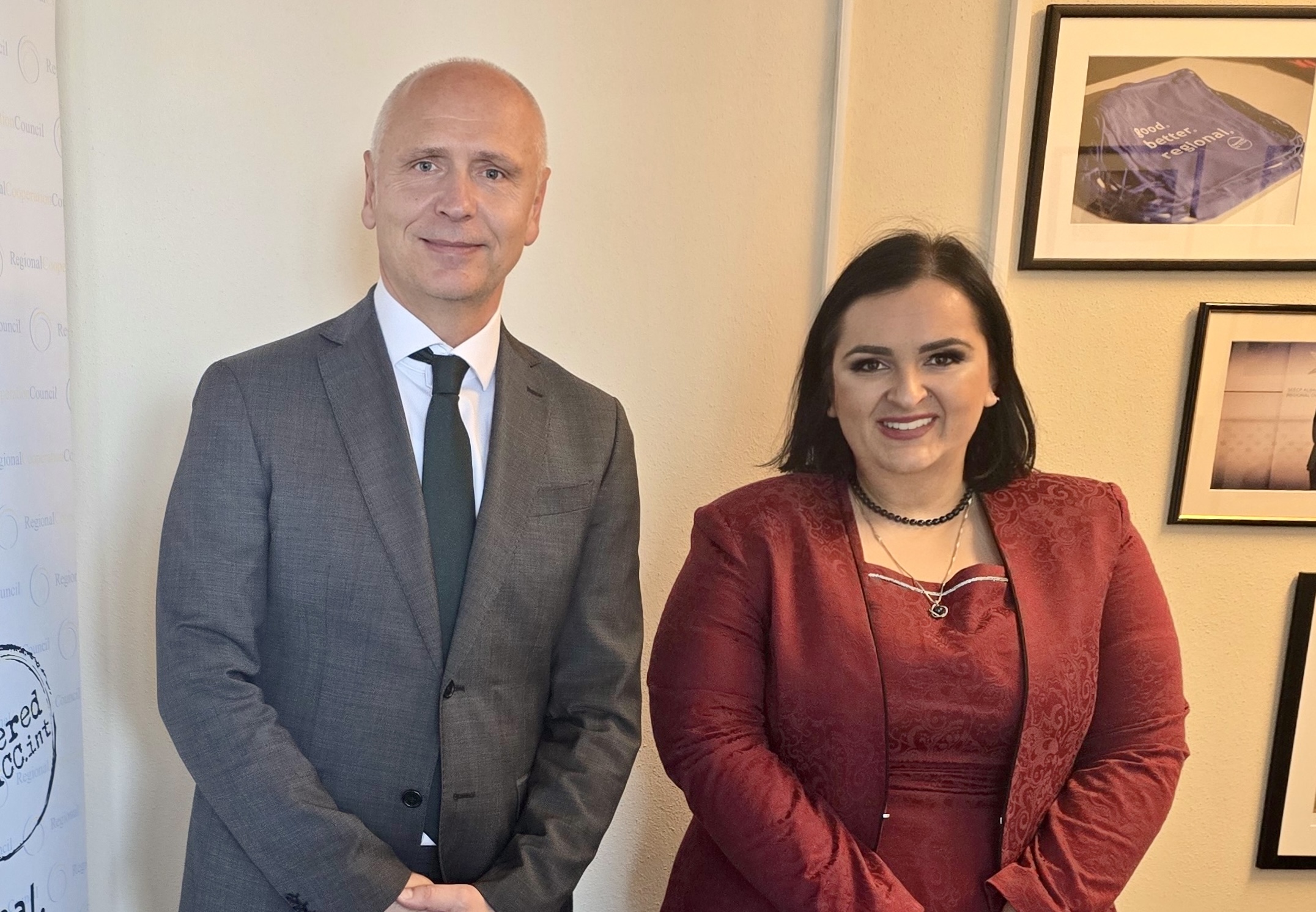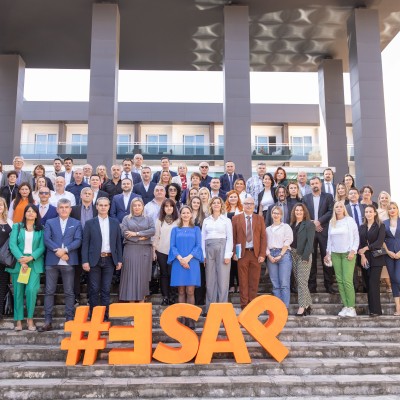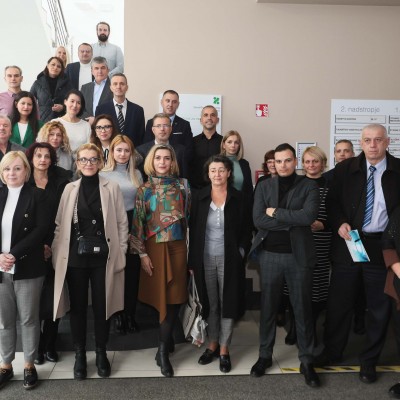RCC welcomes Minister of Labor and Social Welfare of Montenegro in its Sarajevo Headquarters
21 February 2025

RCC Secretary General Amer Kapetanovic meeting with Minister of Labor and Social Welfare of Montenegro, Naida Nisic (Photo: RCC)
Sarajevo – The Regional Cooperation Council (RCC) Secretary General, Amer Kapetanovic, welcomed Naida Nisic, Minister of Labour and Social Welfare of Montenegro, to the RCC headquarters in Sarajevo today. The meeting focused on regional cooperation in employment and labour mobility, with particular attention to the upcoming Ministerial Conference on Labour Migration, ‘Supporting Economic Growth in the Western Balkans Six,’ set to take place in May 2025 in Budva.
The high-level conference aims to foster a shared understanding of the economic potential of labour mobility. It will bring together ministers, government representatives, private sector leaders, and development banks to discuss labour migration as a driver of economic growth. The event, co-organised by the Ministry of Labour and Social Welfare of Montenegro and the RCC, will be facilitated by the International Organization for Migration (IOM), the International Labour Organization (ILO), RCC’s Employment and Social Affairs Platform (ESAP 3), and the EU Delegation in Montenegro.
“Labour mobility is not just an economic necessity but a strategic opportunity for the Western Balkans,” said RCC Secretary General Amer Kapetanovic. “By creating inclusive policies and frameworks that support workforce mobility, we can address labour shortages, stimulate growth, and enhance regional economic resilience.”
Migration is a megatrend shaping the global economy. Currently, migrants make up 3.4% of the world’s population but contribute 10% to global GDP.
In recent years, the Western Balkans Six (WB6) economies have demonstrated growing resilience despite previous challenges such as slow economic growth, trade deficits, and high unemployment. Employment rates reached historic highs in 2022 and continued to improve in 2023, with declining unemployment across the region. However, skills gaps and labour shortages remain a key challenge across various sectors, including low-, medium-, and high-skilled professions.
“The upcoming Ministerial Conference in Budva will serve as a milestone in advancing labour mobility discussions and ensuring sustainable economic development for the Western Balkans,” said Minister Naida Nisic. “By collaborating regionally and implementing effective policies, we can create a labour market that benefits both businesses and workers, ultimately strengthening the economic outlook for the region.”
The Western Balkans Six have taken significant steps towards streamlining labour mobility within regional frameworks such as the Common Regional Market and the Southeast Europe 2030 Strategy. As the Western Balkans progress on its EU path, accelerating economic reforms and addressing workforce gaps will be crucial for regional integration and sustainable growth. Sectors such as energy, green transition, digital transformation, innovation, and infrastructure connectivity will require a robust and adaptable labour market.



